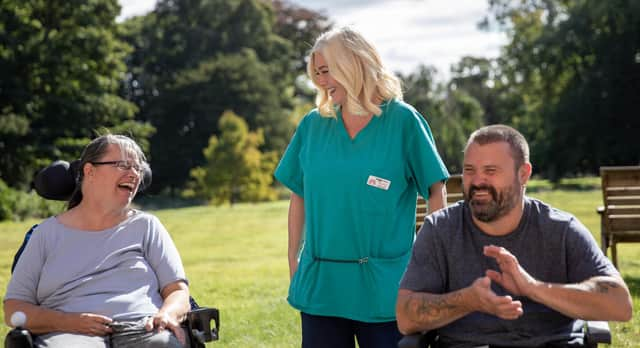Future of adult social care is at stake - Mark Bevan


It was bold, radical and took four years of parliamentary and public debate (there was a war on at the time) to reach agreement and the appointment of Nye Bevan as Minister for Health in 1946. The National Health Service began in 1948, six years after its serious proposal.
In an equally radical move, in September 2020, the Scottish Government commissioned an independent report into the future of Adult Social Care. Derek Feeley, the former CEO of NHS Scotland and the report’s author published 53 informed recommendations across 105 pages in January 2021.
Advertisement
Hide AdAdvertisement
Hide AdScottish Government has asked for views on its ambitions and in this age in which everyone has their say, it launched a public consultation in which government reflects on the recommendations. That consultation closes today (2 November).
You will be forgiven for having missed this radical and massive proposal to create a new, centralised National Care Service, akin to our NHS. It has been fast work, taking place not quite in a time of war but certainly in a period with similar population health pressures to 1942 when Beveridge was asked to reflect on the health of our nation and the role of government. Informed, serious and significant thinking by many experts and those who use services has gone into what this may look like.
A less well rehearsed discussion within this piece of public policy is on the relative role of the state, the individual and the family. We are familiar and largely comfortable with doctors and nurses looking after our health and paying our taxes to enable this service to be free at point of delivery, present challenges in these extraordinary times excepted.
How comfortable are we about a new state organised service ‘taking care’ of our loved ones, in our homes or in state funded establishments? Where are the lines drawn, and who decides? What will be the role of the private and charitable sector in this new state service? Will the industry of ‘commissioning’ drive up cost and drive down quality? And the really big question: who will determine what improves someone’s life in the context of rationing of resources in a sector which has been massively underfunded and experiencing critical shortages in staffing.
With one of the world’s most rapidly aging populations and a less than positive UK position on migration, how can we help those of working age to understand the diversity of career opportunities in a deeply purpose driven role, requiring high skill levels and training and with rewards measured in the impact on someone’s life, if not in the minimum £10.05-an-hour proposed in October by Scotland’s Cabinet Secretary for Health, Humza Yousaf.
As an independent charity, the national respite centre Leuchie House has been right in the thick of these sorts of discussions on a weekly basis, for many years.
We provide respite breaks to people who have been diagnosed with a neurological condition, such as multiple sclerosis or MND. As an aside, it’s a little-known fact that at around 15,000 people, Scotland has almost the highest rates of MS in the world. We work daily with national and local government and local health and social care agencies in the public and private sector to design services around individuals’ needs and desires. We do it pretty well, as attested by the two-thirds of guests who re-visit us and we look forward to informing the debate begun by my namesake 75 years ago.
For more information on how to book a respite break at Leuchie House, visit: https:/ /www.leuchiehouse.org.uk/
Mark Bevan, CEO Leuchie House
Comments
Want to join the conversation? Please or to comment on this article.